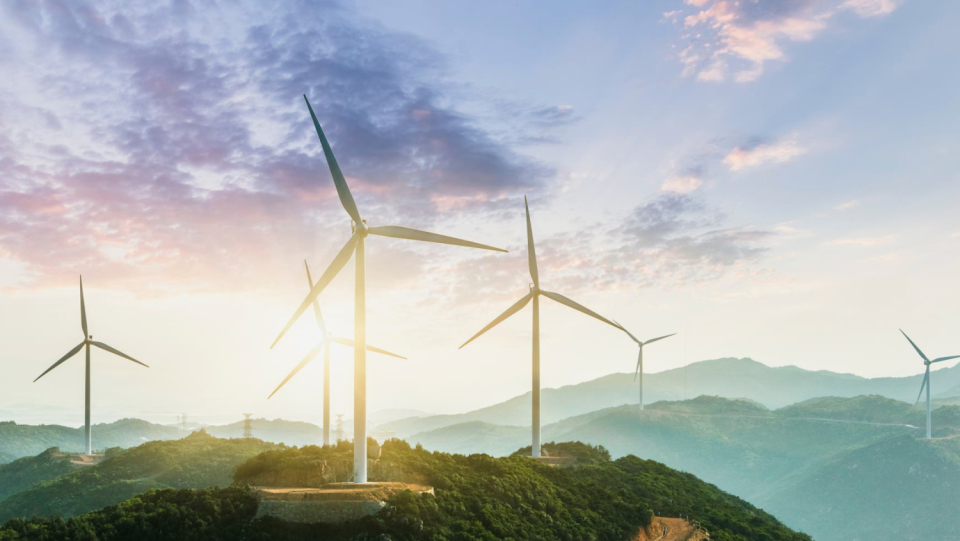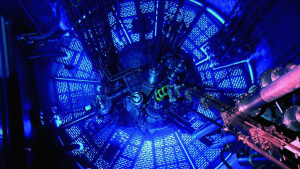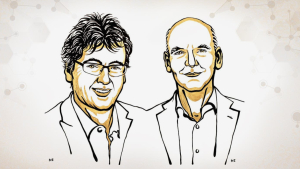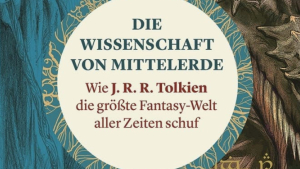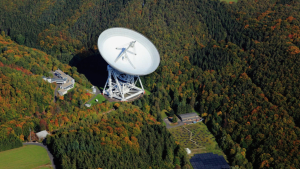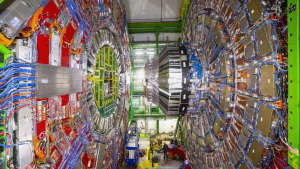If you want to stop climate change, you cannot continue as before - experts agree. But hardly anyone wants to speak of severe restrictions. The crisis can be solved if the economy grows sustainably and climate -neutral, politicians promise. The economic historian and journalist Ulrike Herrmann contradicts that growth and climate protection are incompatible. In her new book "The End of Capitalism", she explains why our economic system must change fundamentally.
Can you briefly explain why capitalism has to end?
Ulrike Herrmann: It's actually very simple. Capitalism is dependent on growth in order to be stable. If the economy shrinks, the system threatens to collapse. Infinite growth is not possible in a finite world. We destroy the entire planet, the climate crisis is only one of many environmental problems.
But there have always been violent economic crises in the past without the system collapsing ...
Capitalism can cope with crises if there is a prospect that growth will start again. Without growth, there is a risk of collapse. Instinctively, everyone knows this too. In the corona crisis, the federal government pumped about 500 billion euros into the economy because it absolutely wanted to prevent chaotic shrinkage.
Why can't we continue to grow?
We live far beyond our means. At the moment we use as much energy and raw materials as if we had three earths. We only have one planet.
Why can't the green growth - the combination of growth and zero emissions - be the solution?
Green growth is wishful thinking. Currently, wind and solar energy together supply just under seven percent of Germany's final energy consumption. Even if we use all available space, climate-neutral energy will not be able to satisfy our energy hunger. So we have to shrink.
Almost all parties rely on green growth as an effective means of climate change. How can it be if this is an illusion?
The parties are based on the wishes of society. They don't lead to follow. If the majority of the Germans were convinced that we have to shrink and get out of capitalism, the parties would also move in this direction. Most citizens hope for green growth and technical solutions in the fight against climate change. This is exactly what the parties reflect. And the parties are not alone. The world climate, the European Central Bank, the Bundesbank, the International Monetary Fund and the World Bank also propagate green growth. Maybe because this solution is so tempting.
In your book, you quote the bon mot of the cultural scientist Frederic Jameson that it is easier to imagine the end of the world than the end of capitalism. How can capitalism be replaced?
In the end, there must be an ecological circular economy in which only as much is used as can be produced. There are also good concepts of what this circular economy could look like. But the growth critics confuse the vision with the path. You have no answer to the question of how to produce less without the economic system collapsing. I believe that the British war economy could be a suitable model for this transition from 1939.
Can you briefly describe the system?
The British also had to shrink their economy at the time. Because they were surprised by the war, they had to clear their factories to produce the necessary weapons. For this they invented a democratic, private planned economy. The factories were not nationalized, but the state has made guidelines on what is still being produced. The tight goods were then distributed fairly. It was rationed, for example meat, sugar, cheese, butter and tea, but also clothing, soap or coal. Arm and rich were treated equally, so the system was extremely popular.
But then there was a concrete enemy, namely Hitler. Can it be easily transferred to the climate crisis?
It is true that the climate crisis has no face. It is a structural problem and global. In addition, we have to shrink in the long run, while the British knew that they would have economic growth again after the end of the war. Nevertheless, there is no alternative to a kind of war economy if we want to cope with the climate crisis. So that no misunderstanding arises: we would not be as poor as the British in World War II, but much richer. It's all about the method.
What could this new society with a private planned economy look like?
Since green electricity will remain scarce and expensive, the central question is what it is still enough for. There should be no longer any air travel because eco -kerosine is technically possible, but it eats far too much energy. There would hardly be private car traffic either. A car weighs between one and two tons and transports only 1.3 people on average. This is pure waste of energy, which also applies to e-cars. The question is therefore: What should happen to the people who work in these industries? 1.75 million are employed directly or indirectly in the auto industry, 850,000 in the flight industry. Even banks that live from lending would also be superfluous, because loans can only be repaid if there is growth. Advertising is no longer needed when the economy shrinks because the few products find their customers anyway. The press landscape would also change because newspapers and magazines are financed through advertisements. However, new jobs are also created - especially in climate protection. But millions of employees should be reoriented. This cannot be left to chance, this must be planned.
By when would this system change have to be completed?
The Federal Government has undertaken that Germany will become climate neutral by 2045. The date is not chosen. After that, there are various climate tip points, so that global warming would become uncontrollable.
How realistic do you think it is that society is really moving in this direction?
There are good reasons to doubt. The number of cars continues to increase, although everyone knows that they are burdening the climate and clogging the cities. There are now more than 50 million cars in Germany. This is amazing! With readings I am often asked what the individual can do now. When I say that we have to eat significantly less meat, many look very horrified. But meat is not harmless. It has been proven that our meat consumption - almost 60 kilos per person and year - endanger health and, for example, favors cancer and heart attacks. Our meat hunger also destroys biodiversity, nature and the climate. The rainforest in the Amazon is cut down for soybeans, cattle produce a lot of the climate of methane, and the manure contaminates the groundwater. Economically, it would also be harmless to largely forego meat. Agriculture is strongly subsidized and regulated by the state anyway. In addition, people would continue to eat - just different. Farms and food industry would continue to be needed. Meat consumption is a strong signal: as long as it does not significantly drop, it is clear that society does not care that we ruin the planet and our own future.
What about giving up consumption, stock exchanges and thrift stores?
Rather not. If everyone stops consuming in one fell swoop, the economy would collapse. It is precisely about completing the transition planned and ordered in an orderly manner so that there is as little turbulence as possible.
Is there a risk that capitalism will also abolish democracy?
If we get out of capitalism in an orderly way, at least there is hope that democracy will survive. On the other hand, if we continue as before, the climate crisis will worsen dramatically, leading to a chaotic collapse. Then there is a threat of distribution struggles and a re-feudalization of society. A few strong ones acquire the last raw materials and goods and distribute them to their minions. Then we would have a social system like in Russia or a warlord system like in Afghanistan. That's why it's so important to plan for shrinkage.
The World Climate Conference has just taken place in Egypt. Have you seen approaches there to talk about overcoming growth on a global level?
No, the majority of those who participated in it continue to focus on green growth.
Will Germany look fundamentally different in 20 years than today?
I think so. The climate crisis will worsen significantly. Take a look at the temperatures. Until mid-November we often had 14 degrees and sunshine. Not only the summer was extremely dry, but also the autumn. These are Italian conditions and will soon overwhelm the local vegetation. Water is becoming so scarce that we will have to ration it in the future. In any case, the production of food will be much more difficult than today, in Germany and worldwide. Currently, there is at least theoretically enough food for everyone, but the food does not reach millions of people. In the future, food will actually become so scarce that then everyone will only be able to get full if we largely abstain from meat and stop the climate crisis in time.
Do you believe that we can succeed in a planned departure from capitalism?
I'm divided on that. Intellectually, I am pessimistic. Emotionally, I still have hope. So far, there are no estimates of how much our economic output will have to shrink in order to become climate-neutral. But it's certainly not more than minus 50 percent. Then we would still be as rich as we were in 1978. Anyone who lived then already knows: we were just as happy as we are today. So even with restrictions, it could be a nice, relaxed life.







